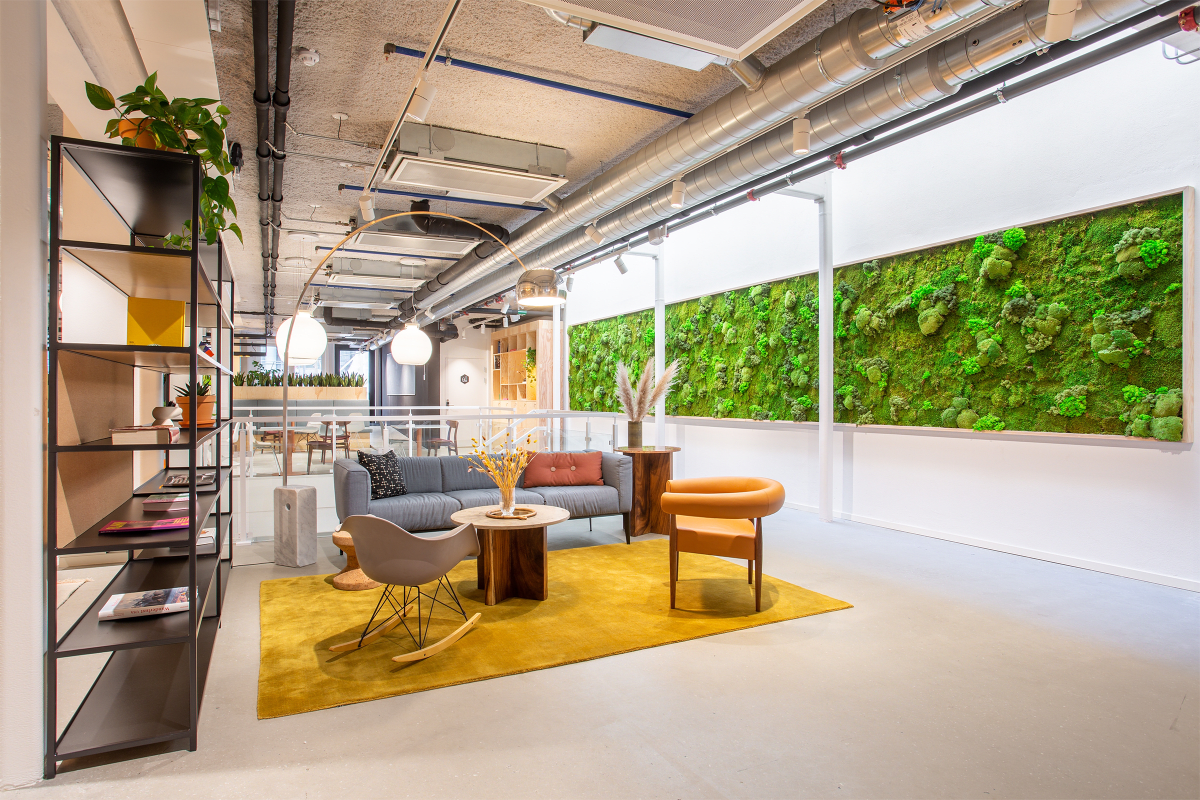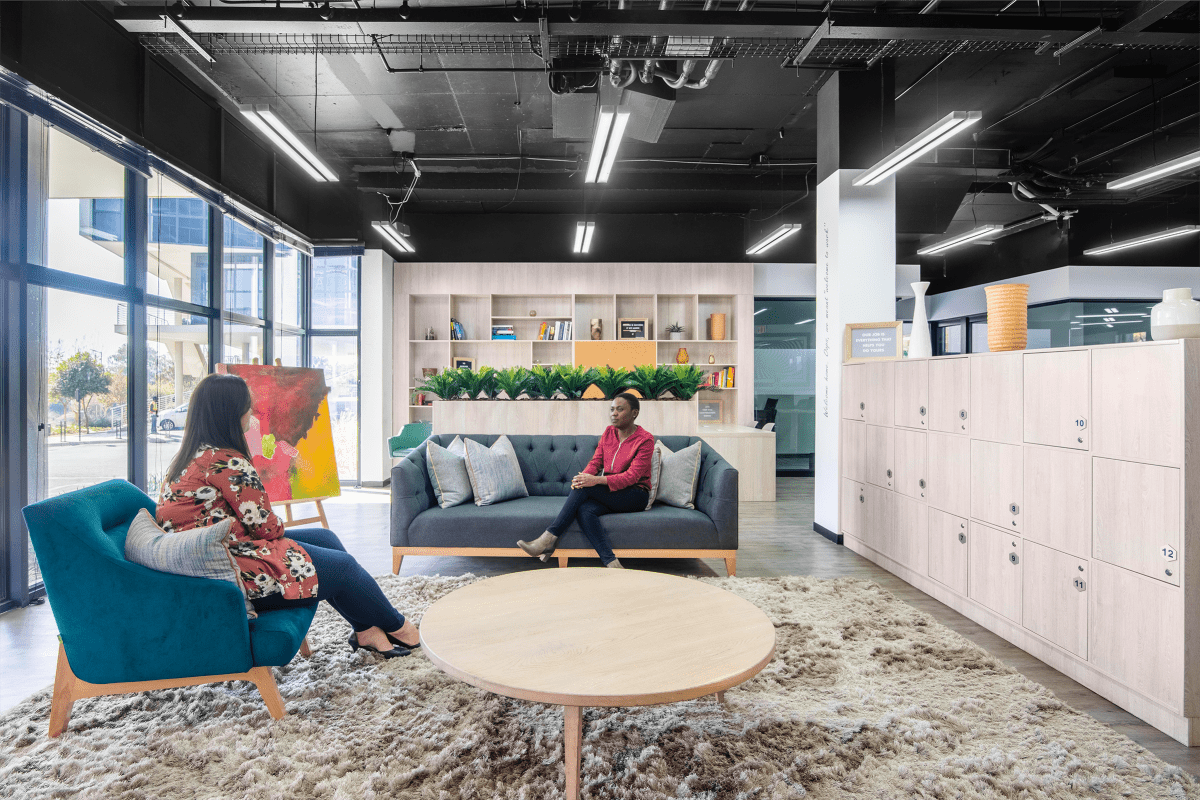As the global tech giant signs a deal for access to 3,500 flexspaces, its VP of Workplace Solutions shares his vision for the new world of work.
Covid-19 has been a real test of resilience for businesses. Overnight, companies were forced to adjust to new ways of working and overhaul their entire operations – something that usually takes years of planning. As Christian Bigsby, Cisco’s Vice President of Workplace Solutions, puts it: “We’ve just had a decade of change management packed into 12 months.”
The scale and speed of the transition required contributed to the tech giant’s decision to sign a groundbreaking deal with IWG. It will allow thousands of staff access to 3,500 flexible workspaces around the world.
Bigsby explains that Cisco has identified a number of markets as key hubs for emerging talent, and that many of these markets are moving so fast there isn’t time to wait for the right permanent office to become free. By providing near-instant ‘pop-up’ real estate solutions in the locations Cisco is targeting, IWG is enabling the tech giant to establish a physical presence and avoid missing out on lucrative opportunities.
Impressive global coverage in cities both large and small, as well as the diverse range of the brands it operates, were the main reasons Cisco chose to partner with IWG, Bigsby says.
‘Catalysing’ the hybrid approach
Bigsby describes the pandemic as a “catalysing moment” for existing trends in flexible working. However, he throws cold water on the idea that concepts such as the hub-and-spoke approach are anything new, and points out that the emerging popularity of hybrid models isn’t solely a result of the Covid-19 crisis.
As restrictions begin to lift in many countries, employers are realising that, post-pandemic, hybrid working offers benefits for people, profits and the planet. As Bigsby says, technological advances now allow people the freedom to work from almost anywhere.
There was already increasing antipathy, he argues, to the pressures associated with traditional ways of working: long commutes in cars or on crowded public transport, and inflexibility that made family life harder.
Moving mountains
The benefits of adopting a hybrid model of working can be huge, according to Bigsby – particularly when it comes to recruitment. “If you think about the way employers can now target the best possible talent, it isn’t dependent on specific geographies,” he says. “If we really take advantage of that, we’re going to go after the best possible talent, wherever that market is – and we don’t need to have a headquarters within a 30-mile commute.
“To get the best people, we don’t have to force a person to relocate from the south of Spain or to London. For a long time, companies have expected people to come to the mountain, and now the mountain is going to have to come to the people.”
Through its deal with IWG, Bigsby stresses, Cisco is empowering employees - wherever they are based - to work from a professional environment that’s convenient and close to home.
Boosting productivity
Bigsby believes that the shift to hybrid working will also boost productivity. By cutting time wasted on activities such as commuting, employees will be able to dedicate more hours to concentrated work.
At the same time, staff will also have more free time to spend with friends and family, pursuing hobbies or doing whatever they enjoy outside of their jobs.
However, Bigsby is keen to stress that Cisco is aware of the need to prevent burnout among employees who work remotely. “‘Signing off’ for the day in hybrid work” can be difficult, he says, and it’s the responsibility of employers to ensure that “work-life balance practices” are implemented when people aren’t based at corporate HQs. The benefit of flexspace is that a clear line can be drawn between ‘downtime’ and ‘work time’: when employees finish for the day, they can leave work behind in a way that’s difficult to do when working from home.
Leadership: looking to the future
So what are Bigsby’s predictions for the future of the workplace? He expects that, after months of lockdowns and social distancing, there’ll be a short-term “sugar rush”, with people excited to get back to the office.
Once that passes, however, Bigsby affirms that business leaders must focus on how they can successfully implement hybrid working within their firms. “Leaders are going to bifurcate over this issue,” he says. “There will be those that really understand the idea of activating their teams and bringing people together, versus those that are still just looking for attendance. One of the things we need to get past is the historic view that somehow attendance is a proxy for productivity. Just showing up isn’t enough.”
In businesses where presenteeism persists among the C-suite, Bigsby thinks there’s likely to be a loss of talent. “It’s been a sound bite forever and it’s a cliché, but while people join for salary or for company brand, they leave because of leaders.”
Shrewd executives will adopt the hybrid approach, Bigsby suggests, but will also “know how to create those great team moments” on the occasions when staff gather at company HQs. “Those are the people others are going to want to work for,” he adds.
Bigsby is confident in Cisco’s readiness for a hybrid future, and in its partnership with IWG. The new world of work is already with us, he says, and it’s here to stay. “There’s no doubt in my mind that we’re never going back to full occupancy five days a week in an office – and that’s going to be true for many, many industries.”
With thousands of smart flexible workspaces all around the world, IWG can offer the services your company needs to navigate the new normal.






